#eurovision 1971
Explore tagged Tumblr posts
Text
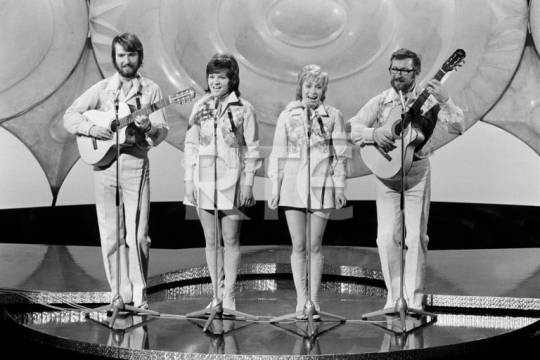
The Family Four represent Sweden in the 1971 Eurovision Song Contest, on stage at Dublin's Gaiety Theatre on 3 April 1971. They sang 'Vita Vidder' which was placed joint 6th. [photo: Roy Bedell]
4 notes
·
View notes
Text

Michael von der Heide
Gender: Male
Sexuality: Gay
DOB: 16 October 1971
Ethnicity: White - Swiss, German
Occupation: Singer, songwriter, musician, actor
Note: Participated in the German national final for Eurovision in 1999 but came 5th. In 2009 was a juror for Switzerland. In 2010 represented Switzerland but came last in the second semi final.
#Michael von der Heide#lgbt#lgbtq#gay people#mlm#male#gay#1971#white#swiss#german#singer#songwriter#musician#actor#eurovision
38 notes
·
View notes
Text
youtube
Northern Ireland's Clodagh Rogers (born 5 March 1947). Reached fourth place as the UK entry in the 1971 Eurovision Song Contest with the tremendously catchy Jack in the Box.
Pink frilly tops and hot pants remain traditional Northern Irish casual wear to this day.
8 notes
·
View notes
Text
Eurovision Fact #451:
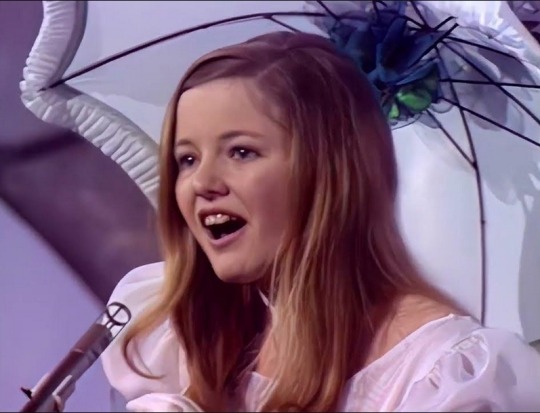
Before taking part in 1985 as a member of the iconic Norwegian duo Bobbysocks, Hanne Krogh participated as a solo act in 1971. However, her song 'Lykken Er...' did not do as well, placing only 17th -- second to last.
[Sources]
Dublin 1971, Eurovision.tv.
Participants of Dublin 1971: Hanne Krogh, Eurovision.tv.
Dublin 1971 Final Scoreboard, Eurovision.tv.
Gothenburg 1985, Eurovision.tv.
#esc facts oc#eurovision#eurovision facts oc#eurovision song contest#esc#esc winners#esc 1985#esc 1971#Bobbysocks#Hanne Krogh
5 notes
·
View notes
Text
"Un banc, un arbre, une rue" - Séverine
1971 Music: Jean-Pierre Bourtayre; lyric: Yves Dessca
Une chanson de Let's Do It, mes singles préférés de 1954 à 1976.
We all have a bench, a tree, a street, where our dreams went to beat, our childhood's been too short. Séverine performed the melancholic song - deep in the standard French style - at the 1971 Eurovision Song Contest in Dublin. The era when points were awarded from the set of Blankety Blank.
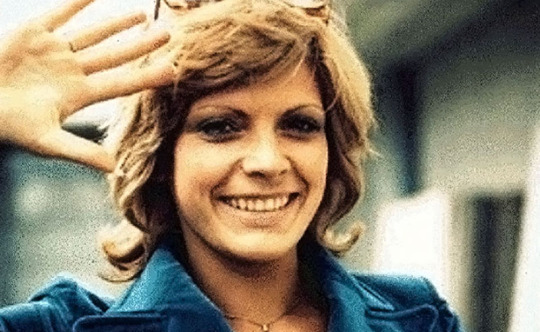
Séverine sells the song wonderfully. She knows when to be fragile, she knows when to be headstrong and confident. And she knows that it's a television contest, catching the camera with a beguiling look. Superlative vocal capacity, excellent show, and wonderful song.
At the time of this performance, Séverine was 22 years old; the Parisian recorded versions of this song in English and Deutsch, but everyone preferred the original. She's continued to record, and made several attempts to return to Eurovision but was usually beaten by the Ticketmaster bots.
youtube
#séverine#eurovision song contest#esc#1971#eurovision#rmc#un banc un arbre une rue#chanson#let5d0it#let's do it#pop music#20th century#1954-1976
1 note
·
View note
Text
Welcome to the Eurovision Song Bracket!
This will be a fairly large bracket, consisting of two "teams" of 68 songs for a total of 136 competitors!
The first team has been preselected, and will consist of all previous winners or popular vote winners if applicable.
This means that if your favorite song won, you do not need to submit them (a couple of exceptions apply, see list at the bottom/read more for details)
Submissions are closed!
Rules!
- Entries must have been a part of the main competition of Eurovision of any year (I might do a MGP mini bracket if the people want that)
- Once again, you do not need to submit winners, they are (mostly) automatically in. Again, see bottom for details and explanations.
- You may submit multiple songs, but please don't send the same song over and over.
- Propaganda is highly encouraged! There is a spot for it in the submission form, and adding it on to the poll itself or sending an ask is also allowed. You may send a DM, but I'll probably be slow to respond that way.
How it Works!
- There will be multiple brackets of 34 songs
- Each of the preselected winners will be randomly against one of the submitted songs. Pairings will be decided through number assignment and a random number generator.
- Vote for your favorite! I will include links to the songs in the poll so you can listen to both before voting. The winner will move onto the next round until we find the winner of that bracket.
- Once all brackets are complete, the winners of their individual brackets will go onto the finals to determine the (unofficial) Ultimate Eurovision Song Winner!
- There will be a preliminary around, as 1969 (hehe nice) had a four way tie, so we will need to determine which of those four will represent that year!
Tagging some other brackets to get the word out
@animalcrossingshowdown @ultimate-soup-showdown @least-sexy-man-competition @soulmatebracket @irlcats-bracket @little-cat-showdown @bestvegetablepoll @baby-brawl-bracket @died-but-not-dead-tournament @unusannusbracket
Click the read more for the list of songs that are automatically in the bracket!
(The colors are just to make it less of a wall of text and easier to read)
(Please let me know if a different color would work better)
1956 - “Refrain” by Lys Assia (Switzerland)
1957 - “Net Als Toen” by Corry Brokken (Netherlands)
1958 - “Dors, Mon Amour” by André Claveau (France)
1959 - “Een Beetje” by Teddy Scholten (Netherlands)
1960 - “Tom Pillibi” by Jacqueline Boyer (France)
1961 - “Nous Les Amoureux” by Jean-Claude Pascal (Luxembourg) 1962 - “Un Premier Amour” by Isabelle Aubret” (France)
1963 - “Dansevise” by Grethe and Jøren Ingmann (Denmark)
1964 - “Non ho l'età” by Gigliola Cinquetti (Italy)
1965 - “Poupée de cire, poupée de son” by France Gall (Luxembourg) 1966 - “Merci, Chérie” by Udo Jürgens (Austria)
1967 - “Puppet on a String” by Sandie Shaw (UK)
1968 - “La la la” by Massiel (Spain)
1969 – [FOUR WAY TIE – SPAIN UK NETHERLANDS FRANCE, PRELIM POLL] “Vivo Cantando” by Salomé (Spain) ; “Boom Bang-a-Bang” by Lulu (UK) ; “De Troubadour” by Lenny Kuhr (Netherlands) ; “Un jour, un enfant” by Frida Bocara (France)
1970 - “All Kinds of Everything” by Dana (Ireland)
1971 - “Un banc, un arbre, une rue” by Séverine (Monaco)
1972 - “Après Toi” by Vicky Leandros (Luxembourg)
1973 - “Tu te reconnaîtras” by Anne-Marie David (Luxembourg)
1974 - “Waterloo” by ABBA (Sweden)
1975 - “Ding a Dong” by Teach-in (Netherlands)
1976 - “Save Your Kisses For Me” by Brotherhood of Man (UK)
1977 - “L'Oiseau et l'Enfant” by Marie Myriam (France)
1978 - “א-ב-ני-בי / A-Ba-Ni-Bi” by Izhar Cohen and the Alphabeta (Israel)
1979 - “הללויה /Hellelujah” by Milk and Honey (Israel)
1980 - “What's Another Year” by Johnny Logan (Ireland)
1981 - “Making Your Minds Up” by Bucks Fizz (UK)
1982 - “Ein bißchen Frieden” by Nicole (Germany)
1983 -Si la vie est cadeau” by Corinne Hermès (Luxembourg)
1984 - “Diggi-Loo Diggi-Ley” by Herreys (Sweden)
1985 - “La det swinge” By Bobbysocks! (Norway)
1986 - “J'aime la vie” by Sandra Kim (Belgium)
1987 – “Laß die Sonne in dein Herz“ by Wind (Germany) [REPEAT WIN BY JOHNNY LOGAN(Ireland), USING 2ND PLACE]
1988 - “Ne partez pas sans moi” Céline Dion (Switzerland)
1989 - “Rock Me” by Riva (Yugoslavia)
1990 - “Insieme: 1992” by Toto Cutugno (Italy)
1991 – “Fångad av en stormvind” by Carola (Sweden)
1992 - “Why Me?” by Linda Martin (Ireland)
1993 - “In Your Eyes” Niamh Kavanagh (Ireland)
1994 - “Rock 'n' Roll Kids” Paul Harrington and Charlie McGettigan (Ireland)
1995 - “Nocturne” by Secret Garden (Norway)
1996 - “The Voice” by Eimear Quinn (Ireland)
1997 - “Love shine a Light” by Katrina and the Waves (UK)
1998 - “דיווה /Diva” by Dana International (Israel)
1999 - “Take Me to Your Heaven” by Charlotte Nilsson (Sweden)
2000 - “Fly on the Wings of Love” by Olsen Brothers (Denmark)
2001 - “Everybody” by Tanel Padar, Dave Benton, and 2XL (Estonia)
2002 - “I wanna” by Marie N (Latvia)
2003 - “Everyway That I Can” by Sertab Erener (Turkey)
2004 - “Wild Dances” by Ruslana (Ukraine)
2005 - “My Number One” by Helena Paparizou (Greece)
2006 - “Hard Rock Hallelujah” by Lordi (Finland)
2007 - “Молитва / Molitva” by Marija Šerifović (Serbia)
2008 - “Believe” by Dima Bilan (Russia)
2009 - “Fairytale” By Alexander Rybak (Norway)
2010 - “Satellite” by Lena (Germany)
2011 - “Running Scared” by Ell and Nikki (Azerbaijan)
2012 - “Euphoria” by Loreen (Sweden)
2013 - “Only Teardrops” by Emmelie de Forest (Denmark)
2014 - “Rise Like a Phoenix” by Conchita Wurst (Austria)
2015 - “Heroes” by Måns Zelmerlöw (Sweden)
2016 - “1944” by Jamala (Ukraine)
2017 - “Amar pelos dois” by Salvador Sobral (Portugal)
2018 - “Toy” by Netta (Israel)
2019 - “Arcade” by Duncan Laurence (Netherlands)
2020 – [CANCELLED]
2021 - “Zitti e buoni” by Måneskin (Italy)
2022 - “Стефанія / Stefania” by Kalush Orchestra (Ukraine)
2023 - “Cha Cha Cha” by Käärijä (Finland) [Second highest popular vote ever, also repeat win by Loreen(Sweden)]
55 notes
·
View notes
Text
GOAT Eurovision Winner Showdown - Round 1 Poll 10


youtube
youtube
25 notes
·
View notes
Text

Texto Wikipedia:
«L'amour s'en va» ("El amor se va") es una canción exitosa elegida con mayor porcentaje del país de Mónaco, para el Festival de la canción de Eurovision 1963. Esta fue interpretada en francés por la cantante y actriz francesa Françoise Hardy.
Los monegascos eligieron por mayoría de votos a Françoise Hardy, ya que el país no contaba con muchos artistas propios, pero finalmente se vio que fue una gran popularidad, en especial de la cantante que provenía de Francia. La canción terminó en quinto puesto con 25 puntos, ya que en primer lugar salieron Grethe Ingmann & Jørgen Ingmann con 42 puntos representando a Dinamarca.
Françoise Hardy era una cantante menor de edad cuando fue reconocida por el público en toda Europa, más tarde se crea un género musical llamado Ye-ye, en donde con tan sólo 18 años de edad en 1962 empieza a ser popular y aparece en varios programas de televisión. "Tous les garçons et les filles" es una de las canciones más conocidas por la misma artista, ya que en 1962 tuvo su lanzamiento y no tardó en llevar su éxito, se vendió 700.000 copias aproximadamente sólo en Francia. Luego pasó a ser una de las artistas mundiales de habla francesa más exitosas y populares de la década de 1960, así también como un icono de la moda influyente. Fue también conocida como una de las mejores artistas de género Ye-ye a partir de mediados de los 60, ya que también estaban otras como France Gall, quien también es elegida para Eurovision.
"L'amour s'en va" es de estilo lento y expresado con apariencias tristes, popular en los primeros años del concurso. Hardy canta sobre una relación que se llevó a cabo, donde expresa que el amor es una cosa efímera, sin embargo, esto es lo que no importa a los amantes involucrados. Hardy también grabó la canción en versión alemana "Die Liebe geth" y más tarde también en italiano "L'amore va", respectivamente, viendo que también fue exitosa en países extranjeros.
La canción fue interpretada en decimoquinto lugar en el festival de la noche, después de Jacques Raymond que representaba a Bélgica, y precediendo a Nana Mouskouri que representaba a Luxemburgo. Al terminar la votación del Festival, la canción recibe 25 puntos, colocando en quinto lugar de 16 posiciones. "L'amour s'en va", sin embargo pasó a que Hardy pueda ganar el prestigioso premio francés "Grand Prix du Disque" en 1963 y unos cuarenta años después de su lanzamiento original de la canción, todavía cuenta como una de sus sinfonías.
En 1964, Romuald representa a Mónaco en Eurovisión, y obtuvo el tercer lugar. Más tarde, en 1971, Mónaco llega a primer lugar con la cantante Séverine, con 128 puntos, cantando el tema Un banc, un arbre, une rue.
#francoise hardy#L'amour s'en va#myeurovisionsongcontest#eurovision#esc#festival de eurovisión#eurovision song contest#my eurovision song contest#esc 1963#Eurovision Monaco
4 notes
·
View notes
Text
The Signs and their Eurovision winners
Here we are again, with just one new name this time, but one for a rarely seen sign for once 👀
♈ Aries: Agnetha Fältskog (ABBA, 1974), Ard Weeink (Teach-In, 1975) Lee Sheridan (Brotherhood of Man, 1976), Elisabeth Andreassen (Bobbysocks, 1985), Céline Dion (1988), Nenad Nakić (Riva, 1989), Linda Martin (1992), Rolf Løvland (Secret Garden, 1995) Katrina Leskanich (Katrina and the Waves, 1997), Nils Olsen (Olsen Brothers, 2000), Sergei Morgun (2XL, 2001) Duncan Laurence (2019)
♉ Taurus: Teddy Scholten (1959), Jacqueline Boyer (1960), Jørgen Ingmann (1963), Björn Ulvaeus (ABBA, 1974), Marie Myriam (1977), Johnny Logan (1980 and 1987), Jay Aston (Bucks Fizz, 1981), Emilija Kokić, Dalibor Musap AND Zvonimir Zrilić (All Riva, 1989), Paul Harrington (1994), Alexander Rybak (2009), Victoria de Angelis (Måneskin, 2021), Oleh Psiuk and MC KylymMen (both Kalush Orchestra, 2022)
♊ Gemini: Grethe Ingmann (1963), Anne-Marie David (1973), Salomé (Spain, 1969), Koos Versteeg (Teach-In, 1975), Kaido Põldma (2XL, 2001), Ruslana (2004), Lena Meyer-Landrut (2010), Eldar Qasımov (Ell & Nikki, 2011), Måns Zelmerlöw (2015)
♋ Cancer: John Gaasbeek (Teach-In, 1975), Toto Cutugno (1990), Amen and OX (both Lordi, 2006)
♌ Leo: Isabelle Aubret (1962), Massiel (1968), Vicky Leandros (1972), Per and Richard Herrey (Herreys, 1984), Bobby Gee (Bucks Fizz, 1981), Marie N (2002), Nemo (2024)
♍ Virgo: Dana (1970), Boško Colić (Riva, 1989), Carola (1991), Fionnuala Sherry and Hans Frederik-Jacobsen (Secret Garden and Co, 1995), Indrek Soom (2XL, 2001), Nigar Jamal (Ell & Nikki, 2011), Jamala (2016)
♎ Libra: France Gall (1965), Udo Jürgens (1966), Séverine (1971), Chris de Wolde (Teach-In, 1975), Smulik Bilu (Milk and Honey, 1979), Sandra Kim (1986), Åsa Jinder (Secret Garden and Co, 1995) Vince de la Cruz (Katrina and the Waves, 1997), Charlotte Nilsson (1999), Loreen (2012 and 2023), Ethan Torchio (Måneskin, 2021), Sasha Tab and Vitalii Duzhyk (Kalush Orchestra, 2022)
♏ Scorpio: Jean-Claude Pascale (1961), Frida Boccara (France 1969), Lulu (UK, 1969), Anni-Frid Lyngstad (ABBA, 1974), Rudi Nijhuis (Teach-In, 1975), Reuven Erez (Alphabeta, 1978), Nicole (1982), Corinne Hermès (1983), Louis Herrey (Herreys, 1984), Tanel Padar (2001), Marija Šerifović (2007), Conchita Wurst (2014)
♐ Sagittarius: Corry Brokken (1957), André Claveau (1958), Gigliola Cinquetti (1964), Benny Andersson (ABBA, 1974), Martin Lee, Nicky Stevens AND Sandra Stevens (all Brotherhood of Man, 1976), Reuven Gvirtz (Milk and Honey, 1979), Mike Nolan (Bucks Fizz, 1981), Charlie McGettigan (1994), Eimear Quinn (1996), Kimberley Rew (Katrina and the Waves, 1997), Sertab Erener (2003)
♑ Capricorn: Esther Tzuberi (Alphabeta, 1978), Gali Altari (1979), Aleksandra Kalafatović (Riva, 1989) Dima Bilan (2008), Salvador Sobral (2017), Damiano David and Thomas Raggi (both Måneskin, 2021), Ihor Didenchuk (Kalush Orchestra, 2022)
♒ Aquarius: Yehuda Tamir (Milk and Honey, 1979), Hanne Krogh (Bobbysocks, 1985), Niamh Kavanagh (1993), Gunnhild Tvinnereim (Secret Garden and Co, 1995), Dana International (1998), Dave Benton (2001), Helena Paparizou (2005), Mr Lordi and Kita (both Lordi, 2006), Netta Barzilai (2018), Tymofii Muzychuk (Kalush Orchestra, 2022)**
♓ Pisces: Lys Assia (1956), Sandie Shaw (1967), Lenny Kuhr (Netherlands, 1969), Getty Kaspers (Teach-In, 1975), Yizhar Cohen (1978), Cheryl Baker (Bucks Fizz, 1981) Jørgen Olsen (Olsen Brothers, 2000), Lauri Pihlap (2XL, 2001) Awa (Lordi, 2006), Emmelie de Forest (2013)
UNKNOWN: Lisa Gold-Rubin*, Itzhak Okev and Nehama Shutan* (all Alphabeta, 1978), Alex Cooper (Katrina and the Waves, 1997)
*I did uncover some information regarding Lisa Gold-Rubin and Nehama Shutan which would make them Pisces and Leo respectively, however I was unable to confirm whether they were the actual Eurovision performers or whether they just happened to share the same names. The lead for Gold-Rubin is stronger... but still unconfirmed 😅
**Some sites list Tymofii's birthday as being in September, however his actual Ukrainian Wikipedia page shows it as February 6th, so that's what I'm going with
Corrections/additional information welcome!
#Cancerian winners continue to be an endangered species#Baby Lasagna could have joined them but alas#Then again so could've gjon's tears#And daði freyr#And sam ryder#Damn there's a few misses looking into it#Eurovision#Esc winners
3 notes
·
View notes
Text
We're playing a tag game today y'all. Put the "on repeat" playlist on spotify on shuffle and list the first ten songs that come up. i was tagged by @bandedbulbussnarfblat (thanks😊) and I'm tagging @darkangel1791 , @translouisdpdl and @bebe-benzenheimer
I don't listen to a whole lot of new music, what can I say.
1. Promise by Voyager. This was Australia's entry for Eurovision this year and SUCH a banger.
2. Visa Vid Midsommartid by Anita Lindblom. A Swedish classic from 1946, recorded by Anita in 1971. One word - goosebumps.
3. Manhattan Skyline by A-ha. I remember this song freaking me out a bit as a kid. I thought they sounded so angry in the chorus! 😅
4. Maasai by Peter R. Ericson. Oh lord. I hate this guy and I hate this song. It's only in my likes because I had been looking for this obscure song for years and years, my vague memory of it being so much better than it actually is.
5. Incestvisa by Cornelis Vreeswijk, Swedish cover of Johnny Be Fair by Buffy Sainte-Marie.
6. Told You So by Depeche Mode. That whole album, Construction Time Again is so so underrated.
7. Touch Me by Weeping Willows, just a great song from the early 00′s.
8. Hoida Mut by Benjamin. One of the songs that were in the running to represent Finland in Eurovision this year. Love the “come to mama baby”, hee.
9. In Dreams by Roy Orbison. Blue Velvet is all I'm saying. 😱 💙
10. Ship Of Fools by Erasure. One of the best songs ever made and which I never get tired of.
4 notes
·
View notes
Text
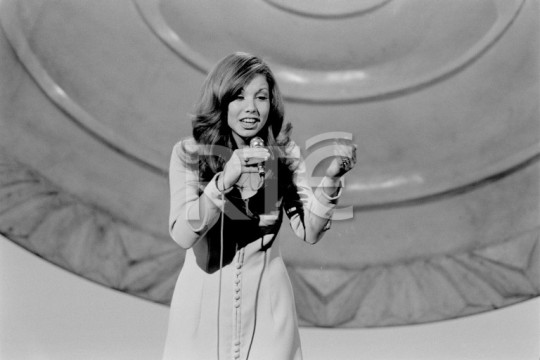
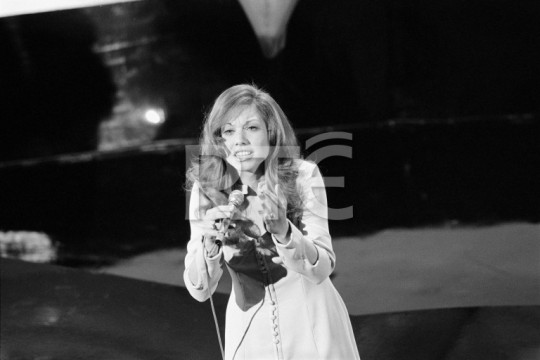
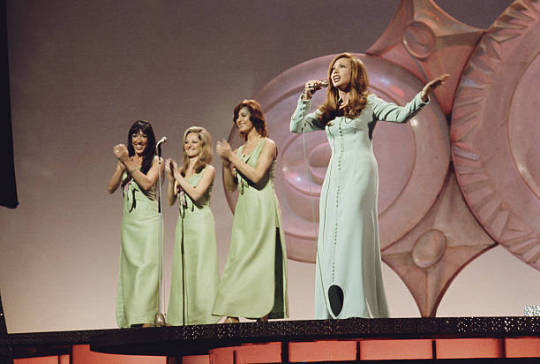
Karina representing Spain in the Eurovision Song Contest 1971, with the song "En un mundo nuevo"
15 notes
·
View notes
Text

Ary dos Santos (deceased)
Gender: Male
Sexuality: Gay
DOB: 7 December 1936
RIP: 18 January 1984
Ethnicity: White - Portuguese
Occupation: Poet, songwriter
Note: Wrote four Eurovision songs to represent Portugal for the 1969, 1971, 1973 and 1977 contests.
#Ary dos Santos#gay history#lgbt history#lgbt#lgbtq#male#gay#1936#rip#historical#white#portuguese#poet#songwriter#eurovision
29 notes
·
View notes
Text









Mapping Madrid: Week 8
For this one, I went to a place I didn't even know existed, Ríos Rosas, named after the politician Antonio de los Ríos Rosas, which is a very fun name to have honestly (in English it translates to Anthony of the Pink Rivers). It is located in Santa Engracia Street, in the Chamberí district. It is one of the oldest stations in the city, built in 1919, which makes it be in the Line 1. It is right next to the Canal de Isabel II. One of the stereotypes of people from Madrid is that we think our tap water is the best in the world. Although objectively that is just false, I will still defend it cause I think it's fun. Anyways, what is true is that Madrid's tap water is a good one, thanks to the previously mentioned Canal de Isabel II, the business who regulates the water supply to the city, through a channel built by Isabel II (Elizabeth II or Isabella II) in 1851 that gets water from the Lozoya River, in the mountains north of the city, into Madrid. Next to Ríos Rosas, in the Ríos Rosas Park, stands the oldest water supply tower in the city, built in 1911, and refurbished into an exhibition hall in 1985. I visited it, as it had a free exhibition on the photographer Joana Biarnés, considered the first Spanish woman photojournalist. It was focused on her work with fashion, and there were even some dresses on display like the dress Karina used in Eurovision 1971!!! (of course I recognized it immediately) Speaking of Eurovision, she photographied Massiel, Spanish representative and winner of Eurovision 1968, as well as the aforementioned Karina. She also photographied icons like Pilar Bardem (Javier Bardem's mother), or Marisol [center right pic]. As I was watching the exhibition I got this feeling that she could've known my grandpa, who was a photographer in the same years as her and also dabbled into photojournalism. And, just as I suspected, once I asked my mum later in the day she confirmed they knew each other and worked together. My grandpa passed away last November, so this hit hard. Anyways, I couldn't do much more in Ríos Rosas cause I was running a bit late (I had to do so many stops on the way there to do some errands you don't even know), but before going into the water supply tower I did what I always do around Book Day (April 23rd) and bought myself a book! This time I went to an English-only library, so I bought a classic English-speaking book, The Old Man and the Sea, by Hemingway! I was gonna get The Great Gatsby at first, but Hemingway's was way cheaper and I needed every cent I could save lol.
#mappingmadrid#rios rosas#when i tell you i gasped when i saw karina's dress and immediately recognized it...#anyways yesterday i walked a total of 10 kms entre pitos y flautas all my body hurts so much#just so you know how tired i got. i never do siestas. only in emergencies#guess what i did after lunch yesterday#so yeah. that's why i'm also making this post today instead of yesterday
4 notes
·
View notes
Text
Eurovision Fact #332:
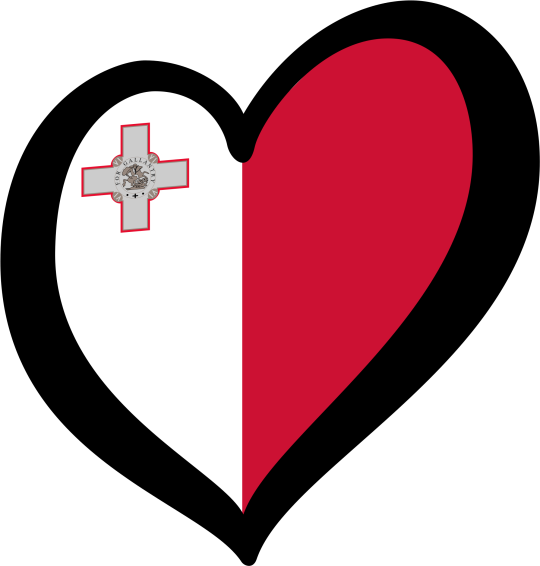
In 1973, Malta withdrew from the Eurovision Song Contest after placing last the previous two years.
[Sources]
Luxembourg 1973, Eurovision.tv.
Edinburgh 1972 Final Scoreboard, Eurovision.tv.
Dublin 1971 Final Scoreboard, Eurovision.tv.
#esc facts oc#eurovision#eurovision song contest#esc#eurovision facts oc#malta#esc 1973#esc 1972#esc 1971
3 notes
·
View notes
Note
🎶✨when u get this, list 5 songs u like to listen to, publish. then, send this ask to 10 of your favorite followers (positivity is cool) 🎶✨
You get five of my favorite Eurovision winners (at the moment) 🥰
France Gall - Poupée de cire, poupée de son (Luxembourg 1965) Séverine - Un banc, un arbre, une rue (Monaco 1971) Teach-In - Ding-a-dong (Netherlands 1975) Eimear Quinn - The Voice (Ireland 1996) Jamala - 1944 (Ukraine 2016)
3 notes
·
View notes
Text
The Last Deep Dive Of Swiss Entries
This post will mark the last ranking of a bunch of songs that represented Switzerland in Eurovision. I will announce my plans for long-term projects at the end of the post (and of course requests are welcome). I will also note (since I'm writing these things 2 weeks in advance) that these will likely be moving to Fridays as I don't have class those days. So let's finish our Switzerland Deep(est) Dive!
1969: "Bonjour, bonjour" by Paola del Medico (5th Place) 1972: "Je vais me marier, Marie" by Patrick Juvet (12th Place) 1958: "Giorgio" by Lys Assia (2nd Place) 1972: "C'est la chanson de mon amour" by Véronique Müller (8th Place) 1968: "Guardando il sole" by Gianni Mascolo (13th Place) 1963: "T'en vas pas" by Esther Ofarim (2nd Place) 1956: "Refrain" by Lys Assia (1st Place) 1967: "Quel cœur vas-tu briser ?" by Géraldine (17th Place) 1966: "Ne vois-tu pas?" by Madeleine Pascal (6th Place) 1971: "Les Illusions de nos vingt ans" by Peter, Sue, and Marc (12th Place) 1970: "Retour" by Henri Dès (4th Place) 1964: "I miei pensieri" by Anita Traversi (13th Place) 1965: "Non, à jamais sans toi" by Yovanna (8th Place) 1961: "Nous aurons demain" by Franca di Rienzo (3rd Place) 1962: "Le Retour" by Jean Philippe (10th Place) 1960: "Cielo e terra" by Anita Traversi (8th Place) 1959: "Irgendwoher" by Christa Williams (4th Place) 1957: "L'Enfant que j'étais" by Lys Assia (8th Place) 1956*: "Das Alte Karussell" by Lys Assia (no placement)
*: the participating countries sent 2 songs to the 1956 edition/only the winner was announced, the rest of the results remain a mystery.
And with that, all the Swiss entries have been listened to by me. Now, my next project will be ranking the Eurovision years from 2007 back to 2002 so I can have my entire lifetime ranked! Til next time!
0 notes